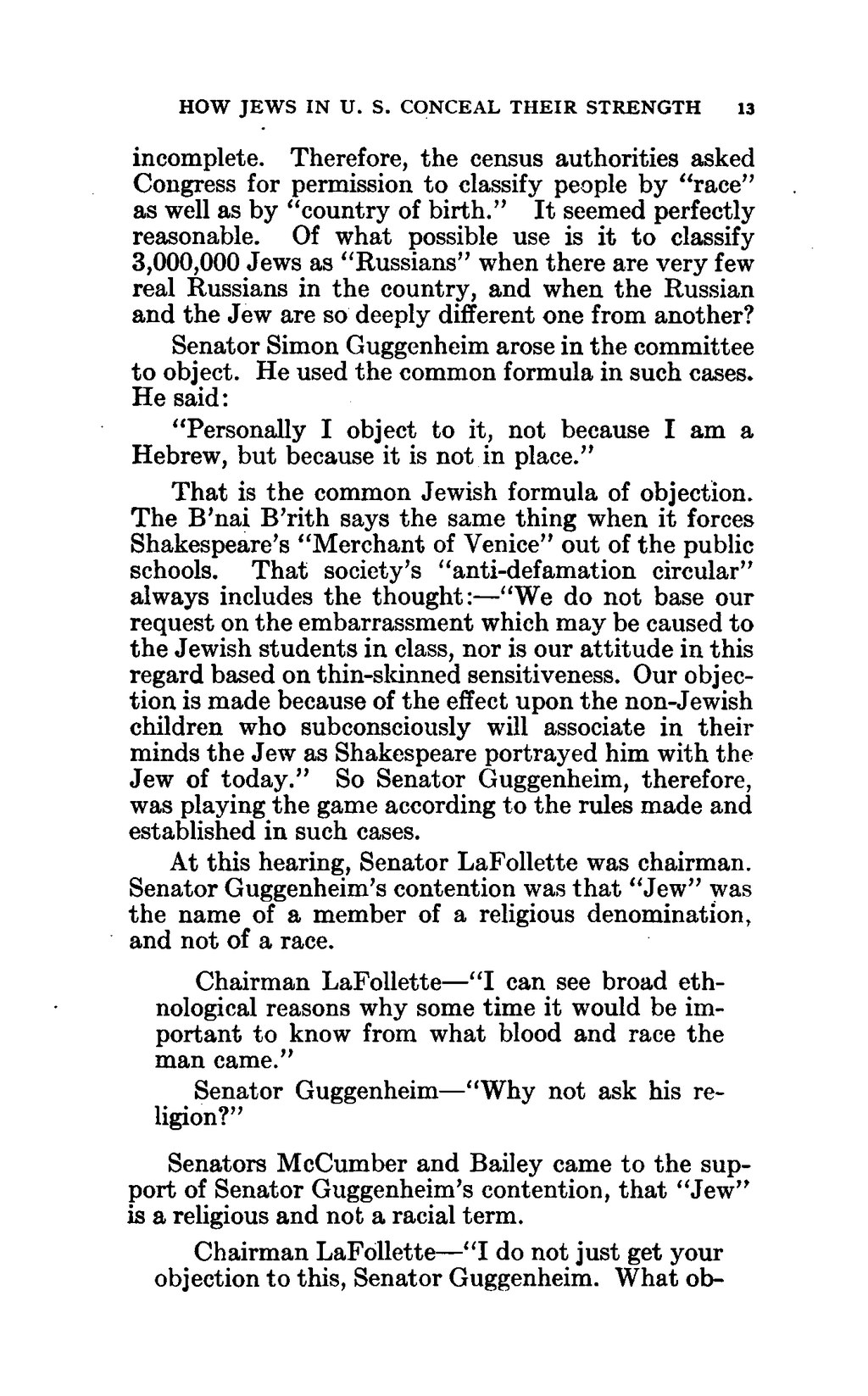incomplete. Therefore, the census authorities asked Congress for permission to classify people by “race” as well as by “country of birth.” It seemed perfectly reasonable. Of what possible use is it to classify 3,000,000 Jews as “Russians” when there are very few real Russians in the country, and when the Russian and Jew are so deeply different one from another?
Senator Simon Guggenheim arose in the committee to object. He used the common formula in such cases. He said:
- “Personally I object to it, not because I am a Hebrew, but because it is not in place.”
That is the common Jewish formula of objection. The B’nai B’rith says the same thing when it forces Shakespeare’s “Merchant of Venice” out of the public schools. That society’s “anti-defamation circular” always includes the thought:—“We do not base our request on the embarrassment which may be caused to the Jewish students in class, nor is our attitude in this regard based on thin-skinned sensitiveness. Our objection is made because of the effect upon the non-Jewish children who subconsciously will associate in their minds the Jew as Shakespeare portrayed him with the Jew of today.” So Senator Guggenheim, therefore, was playing the game according to the rules made and established in such cases.
At this hearing, Senator LaFollette was chairman. Senator Guggenheim’s contention was that “Jew” was the name of a member of a religious denomination, and not of a race.
- Chairman LaFollette—“I can see broad ethnological reasons why some time it would be important to know from what blood and race the man came.”
- Senator Guggenheim—“Why not ask his religion?”
Senators McCumber and Bailey came to the support of Senator Guggenheim’s contention, that “Jew” is a religious and not a racial term.
- Chairman LaFollette—“I do not just get your objection to this, Senator Guggenheim. What objection
